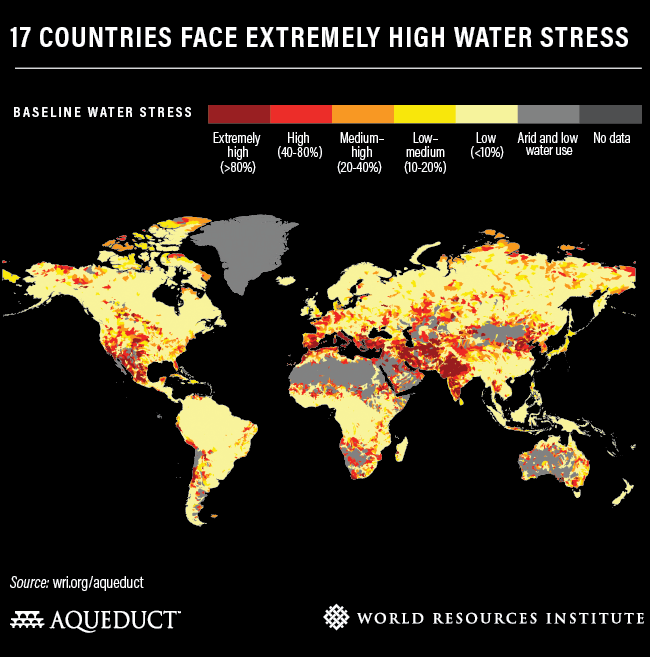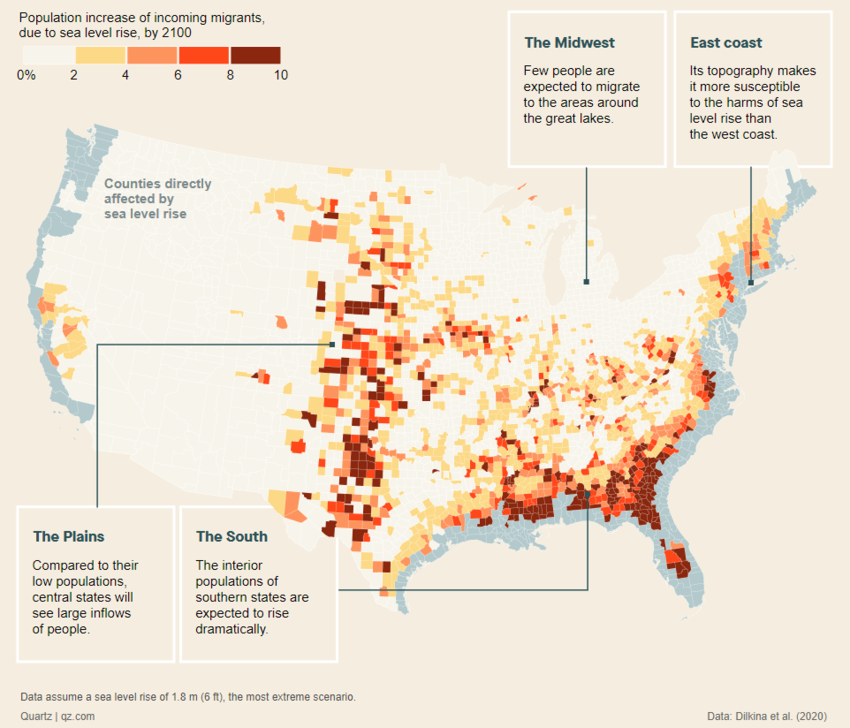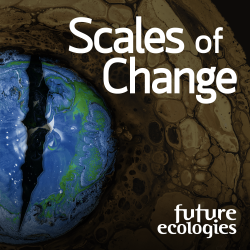Eduvation Blog
Tuesday, September 15, 2020 | Category: Eduvation Insider
Inconvenient Truths: COVID, Carbon, and Climate

Good morning!
Ironically, just as astronomers in Cardiff report the possibility of life on Venus (phosphine anyway), everyone in western North America feels like they woke up on Mars. Millions of acres of forest are burning in California, Oregon, and Washington. Insurance companies report $2B in damages this year from severe weather events in Alberta (floods and hail). And yet another hurricane, Sally, is forecast to make landfall this morning along the Gulf coast.
Today, I want to focus on the single biggest crisis shaping the future of our planet and our society: climate change. In some ways, it has helped pave the way for zoonotic pandemics like COVID19. It is a steadily advancing natural threat to us all, regardless of national borders, that can nonetheless create national rivalries and competitions. To cope with either, we need to listen to scientists, and take extraordinary economic measures. And in some ways, our experiences with the pandemic are a good dress rehearsal for the bigger, more gradual crisis.
But first…
COVID Updates
The COVID19 news continues to play out pretty much as you would expect. Trudeau’s cabinet retreat is strategizing for the second wave. Premier Doug Ford warns Ontario that another shutdown may be necessary. Alberta has sent hundreds of students home just a few days after reopening schools. Oh, and pharmaceutical companies warn “it’s going to take 4 to 5 years until everyone gets the vaccine on this planet.”
And in CdnPSE…
McMaster U reports an employee has tested positive for COVID19. They were last on campus Sep 8, and reported the test result Sep 12. (A grad student also tested positive in August.) Global
Western U has more cases of COVID19 among its students – now apparently 9 in total. The local medical officer of health expects more cases in the community in coming days. London’s 3 assessment centres were swamped as hundreds of students sought COVID19 tests on Monday, and the on-campus centre turned students away by midday. Western has not ruled out using its enhanced code of conduct to discipline students who break health regulations. London Free Press
More Misbehavin’
Dal neighbours feel “menaced by student debauchery,” from drunkenness and nudity to public urination. Apparently students from Ontario are worse than usual this year. The Guardian
Queen’s U neighbourhoods drew out Kingston police repeatedly this weekend to deal with boisterous behaviour. $880 tickets were issued for a >50-person indoor party and a >100-person outdoor gathering. Global
Trent students were “barefaced and mingling closely” at outdoor o-week parties, and university administration and the student union are urging compliance with PHO regulations. Peterborough Examiner
uVic students were involved in 2 large outdoor parties and street revelry dispersed by police on Friday night. The Martlet
“It’s clear that climate change may force educators to make similar calculations to those that have come in response to COVID-19. How can classrooms be renovated with resilience in mind? Is it safe to bring kids back to the classroom in the first place, or should they learn remotely? What about students who lack resources at home, whether that’s high-speed internet or air conditioning?” – Justin Worland, in Time
Climate>FFWD
As we contemplate the next few decades for higher education, climate science and clean energy will be crucial areas of research, sustainability and social justice will be important to our missions, rising sea levels and geopolitical conflicts will drive mass migration and affect global student mobility. I’m no environmental scientist, but I can appreciate that the accelerating climate crisis will shape PSE programs, campus life, staff wellness, student markets, international exchange, and much more…
The Planet is Burning
California has been enduring record-setting, “kiln-like” temperatures up to 121°F, sparking 900 new wildfires in late August – which have already been creating their own weather systems and pyrocumulonimbus clouds. A “heat dome” over Phoenix AZ has set back-to-back records with an average high of 110.7°F in August, when Death Valley recorded 120°F – perhaps the highest temperature ever measured anywhere on the planet at any time. Australian bushfires in 2019-20 burned 28M acres and killed or displaced 3 billion animals (most notably koalas). Even Siberia has been ravaged by hundreds of wildfires since the snow melted in May.
Death by Global Warming
Earth hasn’t warmed this fast in 34 million years, according to a new study of seabed sediments in the journal Science. 2020 winds up the hottest 5-year period in recorded history, says the World Meteorological Association, with average global temperatures 1.1°C above pre-industrial levels. The Paris Accords are striving to avoid exceeding 1.5°C, by cutting greenhouse gas emissions 7% annually. Over the past 30 years, heat has killed more Americans than any other form of weather – and like COVID19, it preys on the homeless, the elderly, and those crowded into inadequate shelter. A new study predicts that major US cities could see up to 70 more days of peak temperatures each year by 2100. A UC Berkeley working paper estimates that rising temperatures could claim tens of millions of lives each year, “matching the global death rate for all infectious diseases combined.”
Rising Carbon Emissions
Climate change is being driven by carbon emissions from China, the US and India in particular – although per capita, Canada and Australia are also top offenders. (Multinationals are responsible for 19% of the world’s carbon emissions, and outsource much of it to developing countries.) Globally, coal has generated more CO2 than oil, and heating/electricity generation produces twice the emissions of transportation. (Wildfire CO2 emissions in California and Oregon have already exceeded those of their power sectors for an entire year.) That’s why, even with travel cut to a trickle by COVID19 lockdowns, CO2 levels continue to rise. Emissions dropped just 8%, and CO2 persists in the atmosphere for hundreds of years. “Humanity’s waste pile is in the atmosphere, and that doesn’t go away.”
Rapidly Melting Icecaps
For 40 years now, Arctic sea ice has been melting at worst-case scenario speed. Greenland’s ice sheet has “passed the point of no return.” Ice sheets in Antarctica and Greenland are melting at a rate that could doublestorm-surge flooding in major coastal cities, raise sea levels 17cm and displace about 16M people by 2100. More than half of Antarctica’s floating ice shelves are at rising risk of hydrofracturing, and a new study shows 2 enormous glaciers are slowly tearing loose – with the potential to eventually raise sea levels by 10 feet. Over the past 30 years, melting glaciers have swelled glacial lakes by 50%, threatening catastrophic floods, says a uCalgary geomorphologist. Pakistan alone has almost 7,000 glaciers, some 3,000 newly formed lakes, 33 of which threaten about 7M people. Since 1994, glaciers have shed 6.5 trillion tonnes of mass, and in the past century glaciers have been responsible for 35% of global sea level rises. UK scientists have found that since 1994, 28 trillion tonnes of ice have disappeared from the surface of the Earth.
Extreme Weather Events
Forecasters are bracing for 2020 to be one of the busiest hurricane seasons in 22 years, with more destructive storms thanks to rising sea levels, warmer oceans, and slower-moving storms. Hurricane Laura accelerated quickly to a Category 4 storm because of warmer ocean temperatures. Aside from flooding and wind damage, hurricanes bring other evils in their wake, like the hordes of blood-sucking mosquitos that have swarmed hundreds of cattle to death in Louisiana. Moody’s calculates that rising temperatures, flooding and water scarcity will threaten 57 US nuclear plants over the next 20 years.

Geopolitical Conflict
The World Economic Forum warns that a quarter of the world’s population already face extreme water shortages that are fuelling conflict, social unrest and migration – and global warming will escalate the problem. Wells, irrigation and water systems are required, and “green infrastructure” like forests, wetlands and watersheds need to be preserved. Hurricanes and coastal flooding could force 13M Americans to relocate away from the coasts by 2100 – prompting Buffalo NY to declare itself a “climate refuge city.” The World Bank projects that 143M people will be displaced in equatorial nations by 2050, and 30M migrants could flee Central America for the US. Governments are being urged to start planning “climate havens” where sheltered cities have room to grow.

Biodiversity Loss
Wildlife populations have declined 68% worldwide since 1970, according to a WWF report, thanks to pollution, climate change, and the conversion of natural habitats into agricultural land. The report provides “unequivocal and alarming evidence that nature is unravelling.” Scientists behind the Global Safety Net project have mapped the critical regions that must be protected to preserve biodiversity and slow climate change. A paleoecological study warns that falling resilience of plant biomes in North America could lead to mass extinctions on a level unseen since humans arrived here 13,000 years ago.
Living Like we have 1.6 Earths
COVID19’s lockdowns and recession have bought us more time, ecologically speaking: 3 weeks, to be precise. The Global Footprint Network calculates “Earth Overshoot Day” each year, the day on which humanity’s demand for resources exceeds what the planet can regenerate in that year. Last year it was Jul 29, but thanks to a 9.3% reduction in humanity’s ecological footprint, it was pushed back to Aug 22 this year. “We are living as though we had the resources of 1.6 Earths.” The news is worse for Canadians: at the rate we consume resources, Overshoot Day was Mar 18. CBC
“From the 80 billion land animals and trillions of sea creatures killed annually for food, to unchecked deforestation displacing habitats and migrations routes, to biodiversity loss and accelerating rates of extinction, the Anthropocene has made the world hell for earth’s other inhabitants.” – Jan Dutkiewicz, in The New Republic
Putting a Price on Climate
Sadly, in capitalist societies it seems sometimes the only way to convey the severity of climate change is to put it into economic terms. A recent report commissioned by US commodities regulators concludes that extreme weather resulting from climate change will destabilize insurance, mortgage, and pension funds. “A world wracked by frequent and devastating shocks from climate change cannot sustain the fundamental conditions supporting our financial system.” On the other hand, the report also details the financial harm to the fossil fuel industry if aggressive efforts are made to curb carbon emissions.
Personal Sacrifices
Recycling and energy conservation won’t have as much impact on your personal carbon footprint as reducing meat consumption, air travel and driving, observes a UBC doctoral candidate. In this era of Zoom meetings and virtual conferences, we’ve all managed to cut our air miles down, in many cases to zero. But some scientists argue that meat and dairy production contribute to as much as 51% of global greenhouse gas emissions, when you include the impacts of deforestation. The solution is either a “plant-forward” diet, or “cellular agriculture” and lab-grown meat protein. Either could help preserve biodiversity and reduce the risk of zoonotic pandemics like COVID19.
Gen Z’s Perspective
73% of Generation Z are very or somewhat concerned about climate change, but the majority believe it is inevitable, according to a recent survey: 26% believe humans can stop it, 49% believe we can slow but not stop it, and 8% think it’s beyond our control. (15% have no opinion, and 2% deny it’s happening at all.) The most optimistic were males, democrats, with high incomes. Those who felt helpless observed that society is poor at collective action, or that “nature’s whims are not humanity’s to control.” When it comes to potential careers, though, 50% of Gen Z were interested in solar energy jobs, compared to just 15% who were interested in careers in coal.
5 Grand Thermal Challenges
Humanity may push the climate over the tipping point toward our own extinction, because >90% of our energy consumption involves generating or transferring heat. If research can address 5 key challenges in the next 20-30 years, we can save ourselves: 1) thermal storage systems for the power grid, 2) decarbonizing industrial processes like cement and steel, 3) cooling without dangerous refrigerants, 4) long-distance transmission of waste heat from power plants, and 5) variable conductance building envelopes (which could let heat in or out on demand). Nature Energy
Climate will Disrupt like COVID
Time observes that the debate about reopening US schools this fall “is a preview of climate-related disruption to come.” Campus precautions against COVID19 echo 2010 plans to reopen Bangladesh schools post-flooding and make them resilient to future climate events. Extreme weather may force schools to close for days, weeks, or months. Rising temperatures make students less effective learners, even with air conditioning. “If the COVID-19 pandemic is any hint, the educational system will be woefully unprepared.” Time
“Responding to climate change and escalating inequality could provide a unifying national purpose like we haven’t had since World War II. This gets to the very heart of who we want to be as a people in the 21st century.” – Thaddeus Pawlowski, Columbia U Center for Resilient Cities and Landscapes
#ICYMI
 Here Be Dragons
Here Be Dragons
Speaking of climate change and the psychological obstacles to action, uVic is supporting the production of a new 8-part podcast series, “Scales of Change,” based on the “Dragons of Inaction” identified by Robert Gifford. There are 36 species of dragons, in 7 genera: limited cognition, ideology, social comparison, sunk cost, discredence, perceived risk, and limited behaviour. Future Ecologies
Thanks for sticking with me! I have to admit, it’s heavy stuff, but seems particularly timely today. I’ll be back tomorrow with something more focused on higher ed… Until then, stay safe and be well!
Ken
All contents copyright © 2014 Eduvation Inc. All rights reserved.